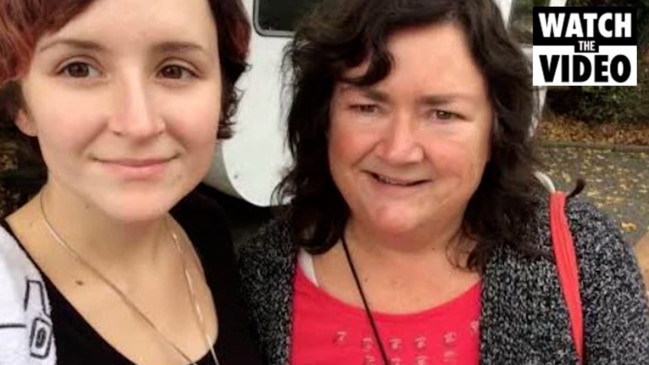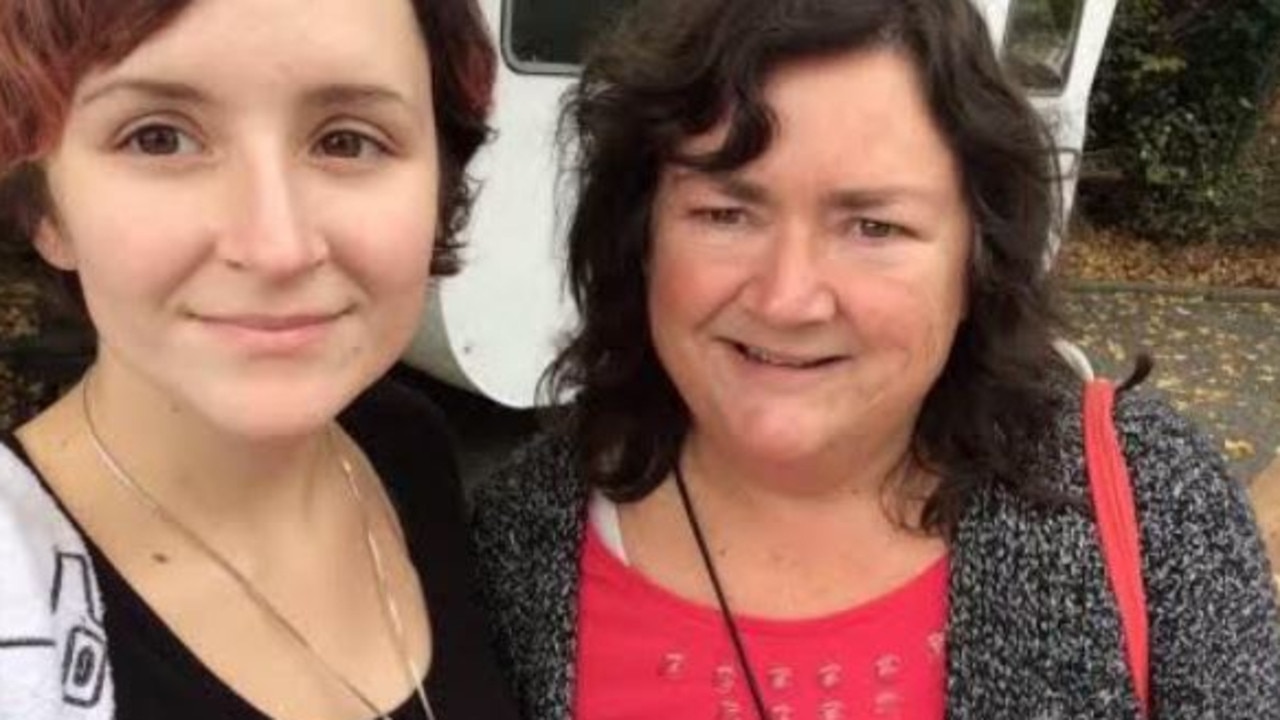Andrew Rule: Sad case of missing grandmother Colleen South
Among the few sorry possessions Colleen South left with her abandoned car was her journal. On the last page, she had scrawled “Help me please.” In the end, no one did.

Australian police forces hunt down criminals as well as any police, anywhere.
Using hi-tech tools to trace or trap people has brought brilliant results: the arrest of the rapist who murdered Jill Meagher; the arrest of the man since charged with the Wonnangatta murders of Russell Hill and Carol Clay; finding little Cleo Smith with her alleged abductor in Western Australia last year.
What our police are not so good at is finding lost people.
Exactly seven weeks after Christos Pittas vanished on a Friday afternoon walk at Dinner Plain in the Victorian high country, Colleen South went missing in far more hospitable country in the Mallee.
Christos Pittas wasn’t found, and might never be, despite a week’s intensive searching in rugged country near Mt Hotham before snow storms closed it down.
The search for the unfortunate Colleen South, which started belatedly and was conducted intermittently over five weeks, also failed, though not for such obvious reasons as rugged terrain and foul weather.
It failed because police apparently couldn’t track an elephant through snow. A situation made worse because she went missing from Adelaide but was lost in Victoria, falling in the cracks between interstate police forces that don’t always co-operate smoothly.

The poor woman’s decomposing body finally turned up last week under a lone tree in an open paddock within sight of her car. Exactly 1429m, as later measured across open country as level as a racecourse.
A horse can cover that distance in under two minutes — and a dog walker might stroll it in 20.
Which means that a specialist tracking dog might have found her, possibly alive, within half an hour of picking up the scent where she left her car in Mackies Rd, near Wycheproof, on July 3.
But, perversely, Victoria Police (like SAPOL and other state forces) has no specialist tracker dogs. Still, they could have called in the same elite search dog who helped locate teenager William Callaghan at Mt Disappointment after he survived two freezing nights in the bush in the winter of 2020.
Despite some police privately conceding that the dog had saved the boy, the same dog (one of three available) was not used to search for Christos Pittas last May. Police knew better.
Except they didn’t, and a man died.
Now it has happened again, and weather and terrain are not an excuse.
When the city-based police machine lurched into gear, it eventually dispatched aircraft, drones, motorbikes, horses, information caravans and media advisers.
In other words, it was the usual search party circus that attracts TV cameras and runs up travel and overtime costs — but still failed to find one overweight, unwell grandmother hardly capable of walking out of sight.

Not only that, police missed the new box of medication that Colleen South’s relatives quickly spotted near her abandoned car. At the time of writing, the search has not found the red jacket and shoes she was wearing the last time she was seen alive. It doesn’t inspire great confidence.
One result of this failure is that the missing woman’s family endured the anguish of not knowing her fate for five weeks, feeding their fears of foul play, horrifying scenarios of abduction and murder.
The coroner will need months to assemble the facts about how and why Colleen South died. Whether that will include probing underlying reasons for the debacle will be interesting.
Meanwhile, here’s how it looks to the grieving family — and to taxpayers who pay public servants and police to serve the community.
The coroner will hear that the deceased’s body was not found by the air wing, not by mounted police, not by the dog squad, not by police search and rescue, not by police drones, not by SES units or by the selfless local volunteers who joined in when they saw how distressed the missing woman’s family was.
The coroner will conclude that the deceased’s remains were found only because an absentee farmer from Pyramid Hill arrived to spray his half-grown wheat and happened to notice the body under the tree in his paddock.
It is not the coroner’s job to speculate about hypotheticals, but we can: it’s clear that if the farmer hadn’t spotted the body that day, Colleen South’s remains might not have been found until harvest time next summer. If ever.
Mallee paddocks don’t have much traffic between cultivation and harvest, apart from crows and foxes. If you don’t search such a paddock properly the first time, the chances are that anything or anybody that’s lost there stays that way until it’s too late to matter.
So what went wrong in the sad case of the missing grandmother?

The final tragic chapter of Colleen’s South’s life began on Friday, July 1, in Adelaide. At 58, she was moving house from the suburb of Renown Park to Queenstown. Moving is stressful for anyone, let alone a vulnerable woman on medication for a mental condition she’d lived with for decades.
Some time that day, her family says, Colleen reacted badly to a disagreement with a friend helping her move. She drove off in her silver Hyundai Getz. Something she had done a few times before over the years to escape stress.
But the other times she’d done it, she had always called her daughter — and always returned in three days.
This time she didn’t. That’s why her family became deeply worried three days after reporting her missing on that first Friday.
What the family didn’t know until much later was that late the next day, Saturday afternoon, a woman matching Colleen’s description in a small silver car had attracted the attention of another driver on the Calder Hwy between Bendigo and Bridgewater.
It was almost 5pm. The little silver car, travelling far too slowly for the highway traffic, veered off the road and stopped at an angle.
Behind her, Mary Headon and her sister Jean Coghlan were so concerned that they pulled up. Mary approached the silver car and saw an exhausted-looking woman with messy dark hair and green eyes, head lolling and eyes glassy. The car was jammed with possessions.
Mary Headon thought the woman was suffering “an episode”. The woman responded to questions oddly, then said she’d had the sun in her eyes.
The sisters continued home to Charlton. A few days later, when Mary Headon saw reports of a missing Adelaide woman whose car had been found in the Mallee, she guessed it was the same one. She got in touch with Colleen South’s relatives through Colleen’s niece, Melbourne actor Farah Mak.
From Bridgewater that Saturday evening, Colleen could have cut cross country towards Swan Hill, where she knew someone. Or, agitated and confused, she might have missed the turn and continued north west straight into the Mallee.
Either way, she ended up in the Mallee the next day.

No one seems to know where she stayed overnight. At noon the next day, Sunday, July 3, she was caught on CCTV struggling to fuel her car at a self-serve pump in Berriwillock. A kindly passerby helped her and paid for $10 of fuel.
By mid-afternoon, she’d driven 70km south past Wycheproof into the neighbouring district of Bunguluke. A local saw her car in Mackies Rd, where it ends at the Charlton-Swan Hill Rd, next to the Bunguluke bush reserve 15km from Wycheproof.
A little later, veteran Mallee auctioneer Jim Coffey saw the silver car at the same spot, close to the entrance of a Coffey property. He thought it had been dumped.
When the car was still there the next morning, Coffey tried to report it to Charlton police, but the call was unanswered so he left a message.
That night, a neighbouring farmer, Jack Durie, was woken well after midnight by his sheep dogs barking, something they rarely do and never without reason.
Durie told friends he was puzzled by it. But when he found out later that week that a missing Adelaide woman had abandoned her car just up the road, locals wondered if she had been wandering nearby paddocks for two nights. It would explain the barking dogs.
On Tuesday, July 5, Jim Coffey had a closer look at the car and saw that the airbag had gone off and that it had lost a piece of trim. But it was minor damage and the car was drivable.
This time, he got his office to call the Wycheproof policeman. When he returned that afternoon, he saw police looking at the car.
As a stock and station agent, Coffey is a shrewd judge of livestock and people. His gut reaction, once he heard the missing woman’s age and condition, was that she’d be close by.

So convinced was Coffey that he and his wife Lana checked under a nearby culvert, then in the old sheep and horse dip (plunge baths once used to kill parasites) in Mackies Rd and the unoccupied buildings on their property.
When police started searching the next day, July 6, Coffey saw them on motorbikes about 20km away and wondered why they were wasting valuable time.
“I kept saying she’s out there at Bunguluke, near the car.”
A search radius of anything like 20km was too big to cover properly.
What it needed, locals thought, was a close search of the nearest paddocks and bushland. But they were too polite to say so, although a critical edge crept into social media posts as days turned into weeks and there was clearly no hope of anything but a sad ending.
The time for “live find” dogs passed in the first week. No one spelt it out to the family but from then on they were looking for a body.
On July 18, a Swan Hill policewoman emailed a dog handler who could supply a “cadaver dog” trained to find bodies.
What would it cost, she inquired, to use such a dog? The prompt answer was “nothing for the dog” and only the cost of fuel and a night or two of accommodation for the handler. Meaning it would cost from $200 to $300.
The police woman stated that the proposal would go to senior officers. But, after that, there was silence.
Having missed any chance to find Colleen South alive, the police hierarchy wasn’t about to spend $200 to help find the body.
Which proves that memories are short and minds are narrow. One of the first lessons police investigators are taught as recruits is that the mind is like a parachute — to work, it has to stay open.
They are also taught “that failure to search is failure to find.”
Among the few sorry possessions Colleen South left with her car was her journal. On the last page, she had scrawled “Help me please.”
In the end, no one did.





